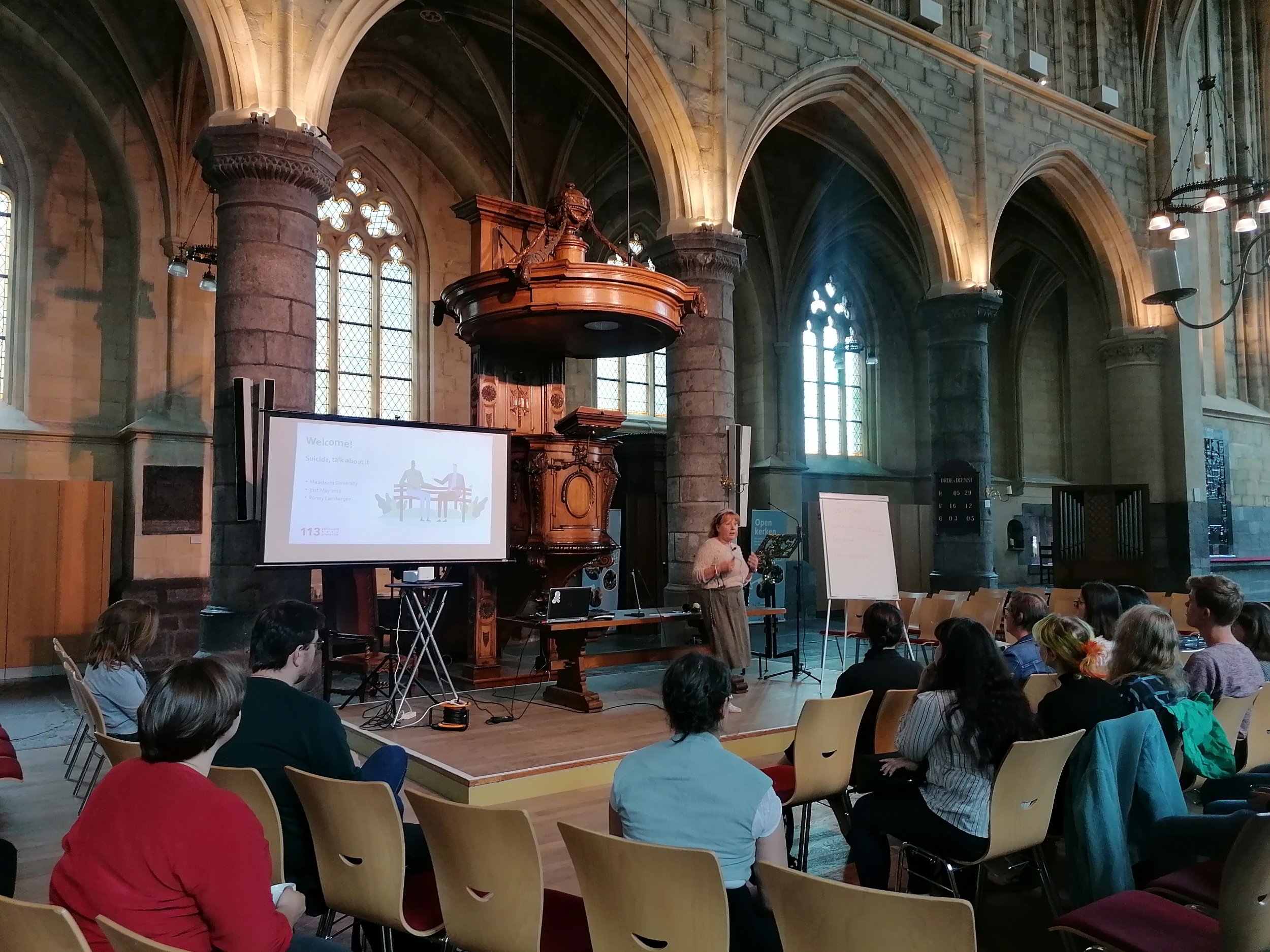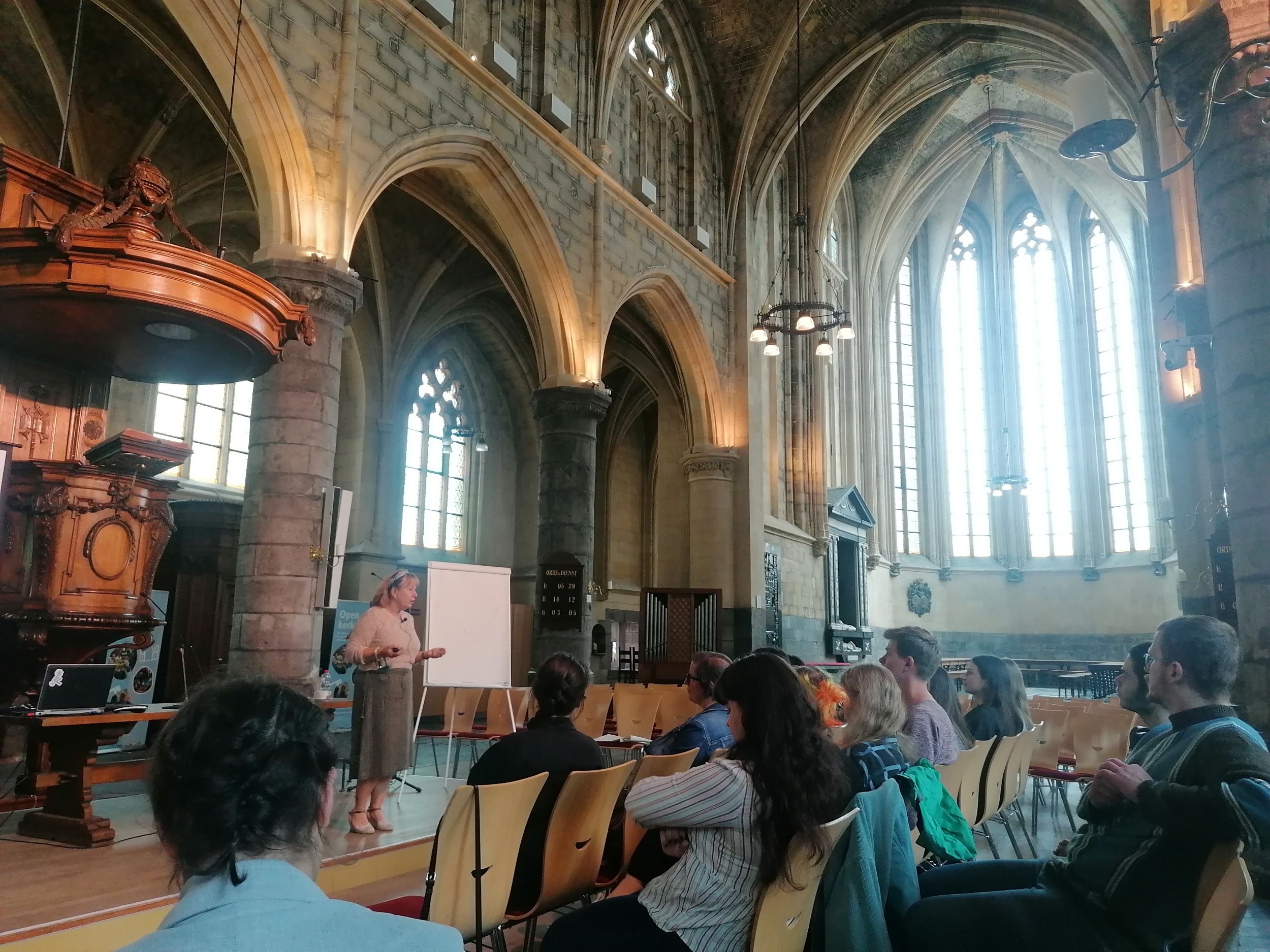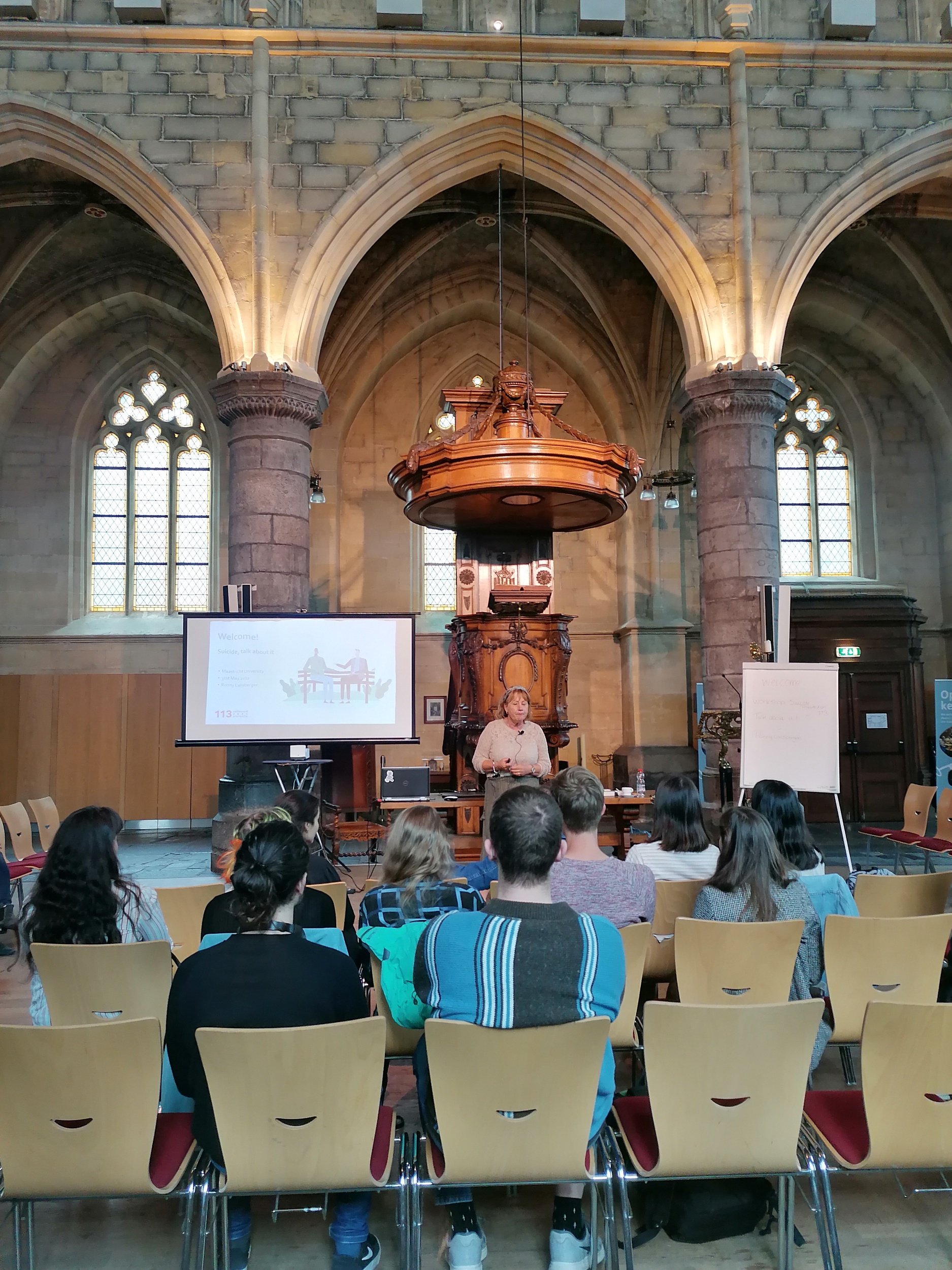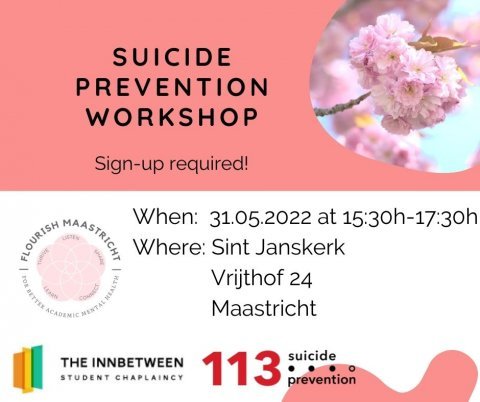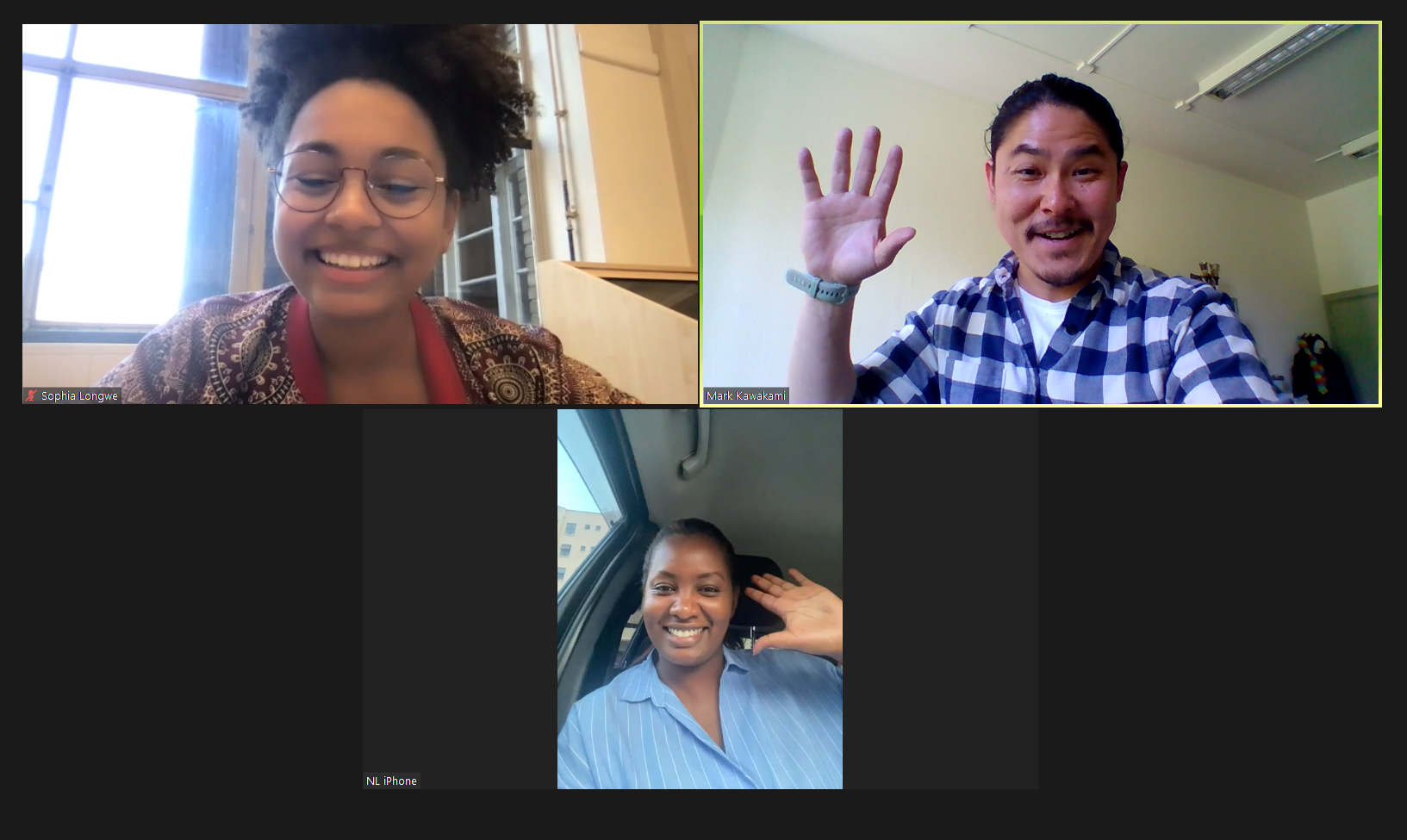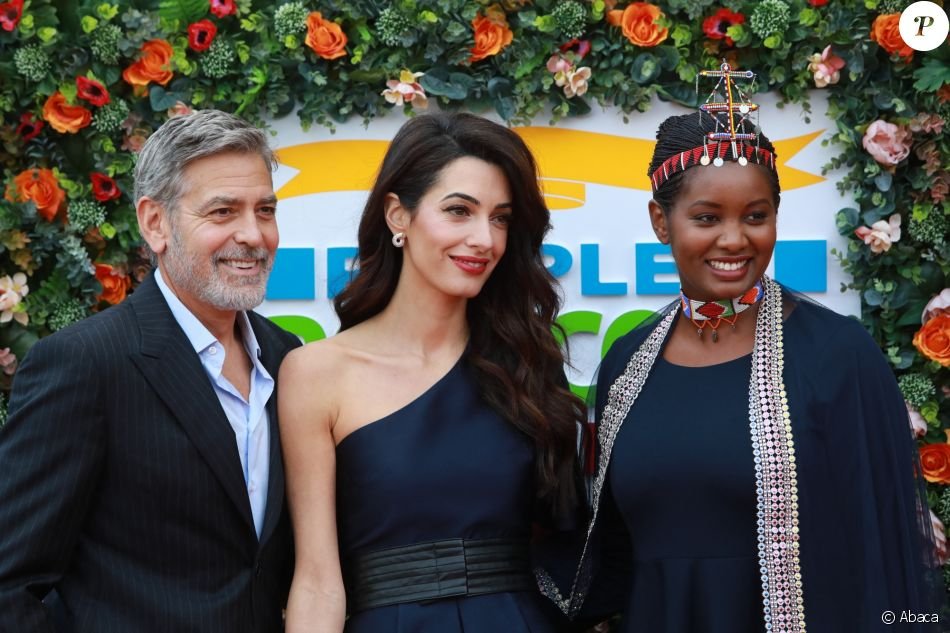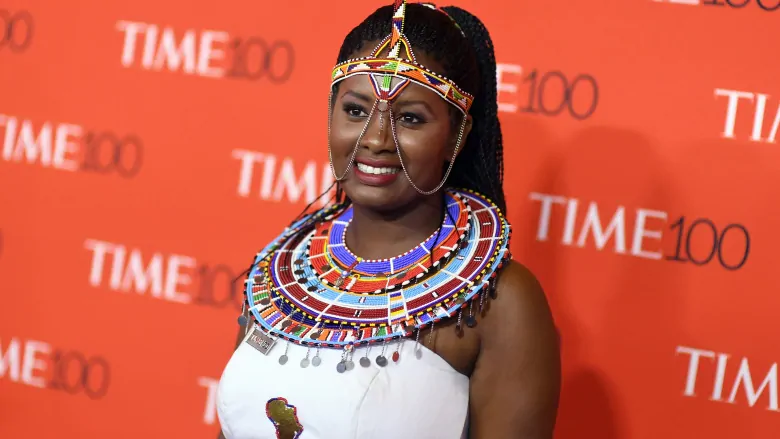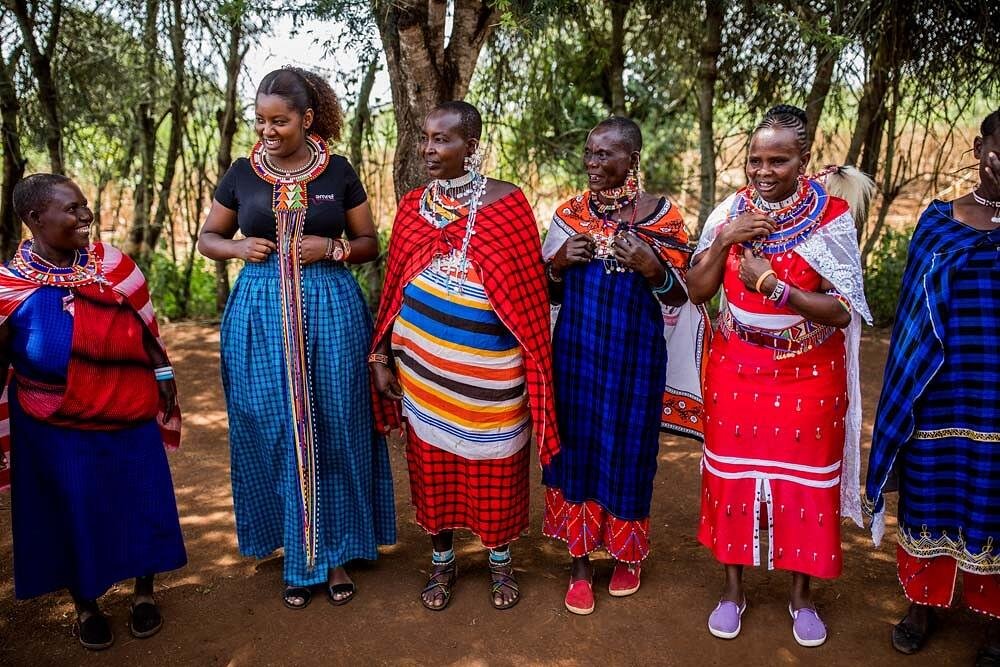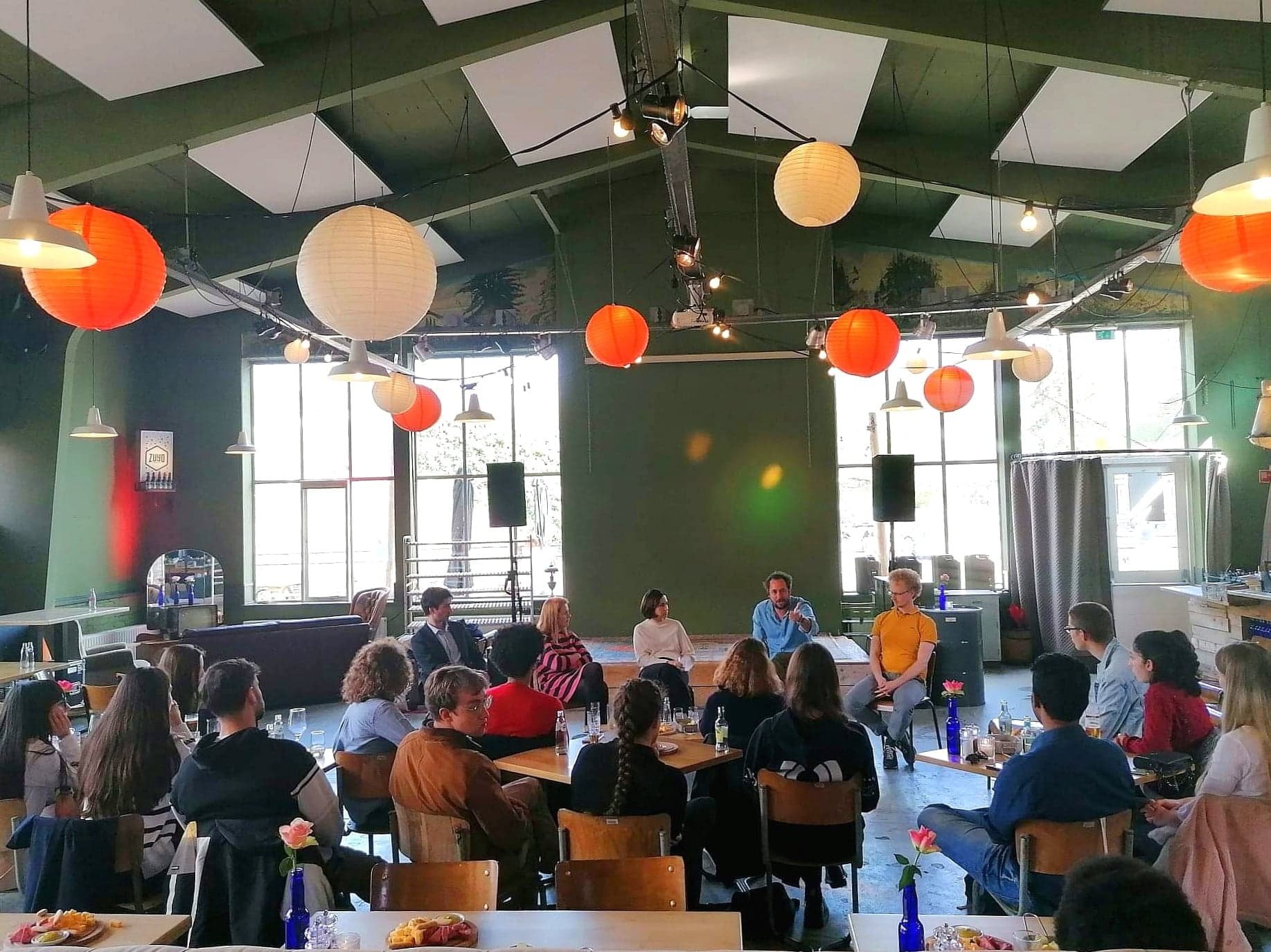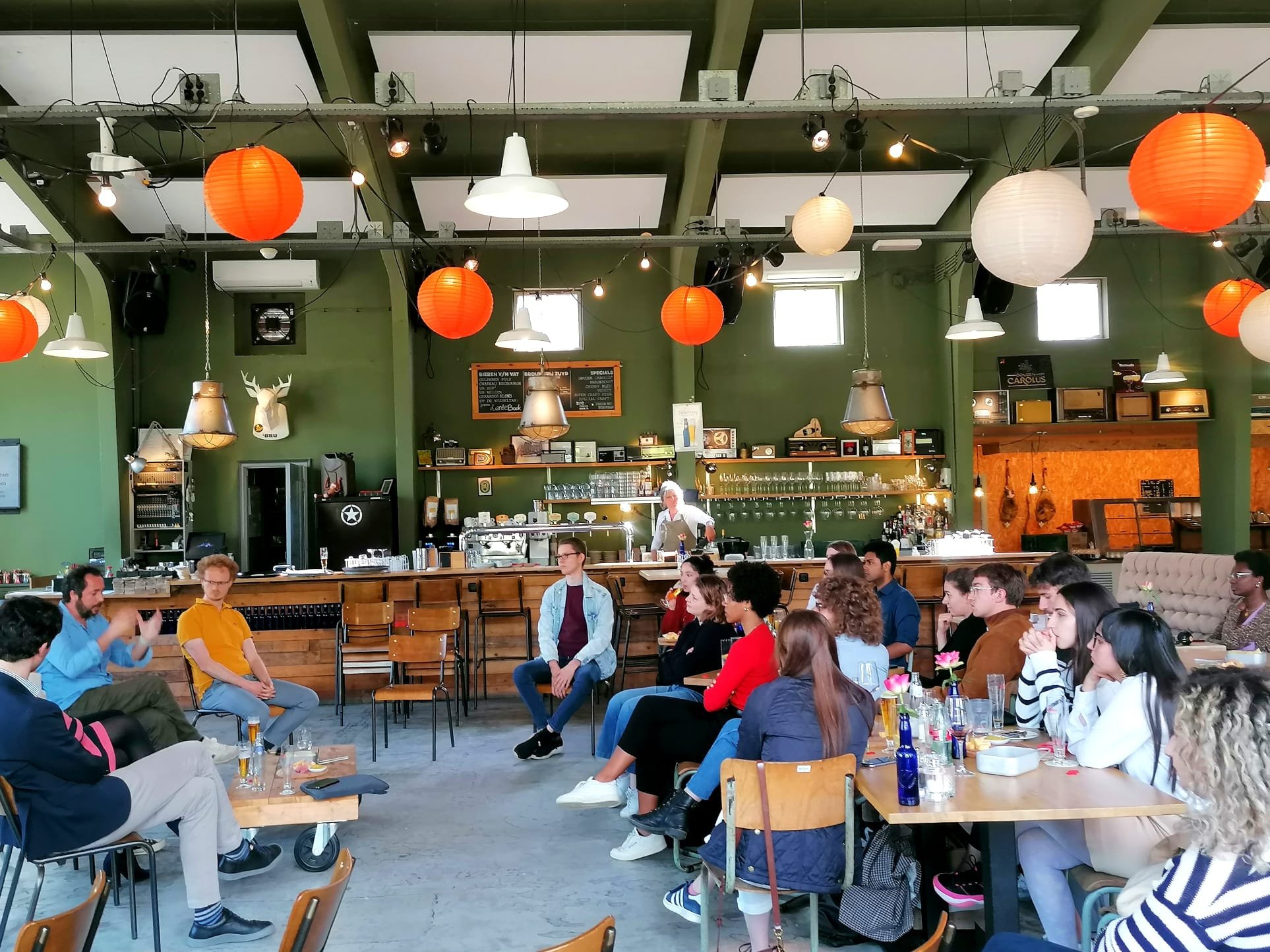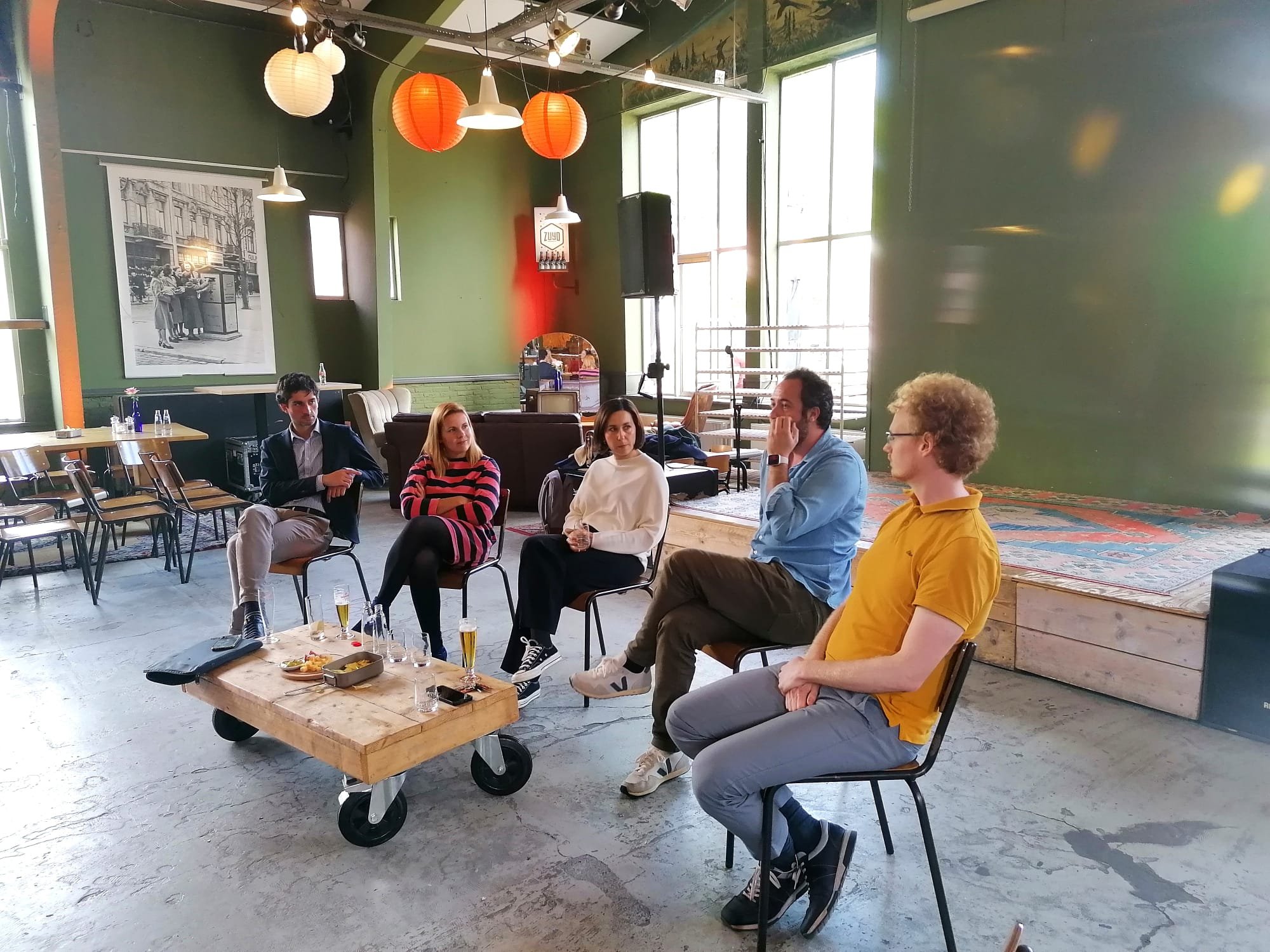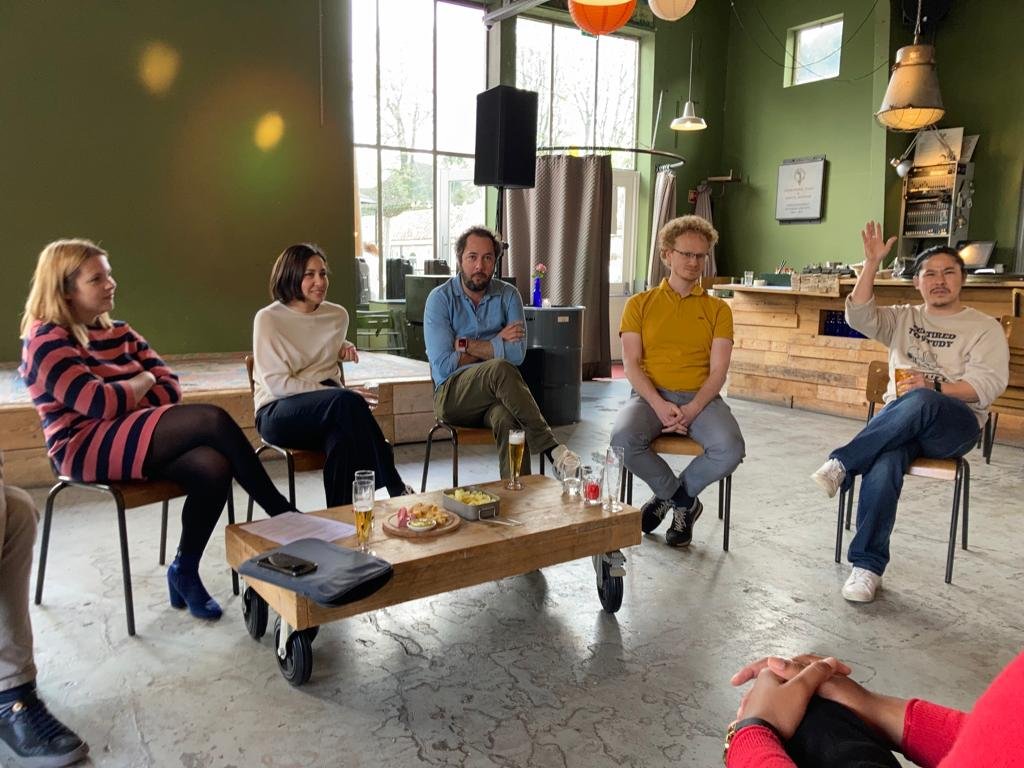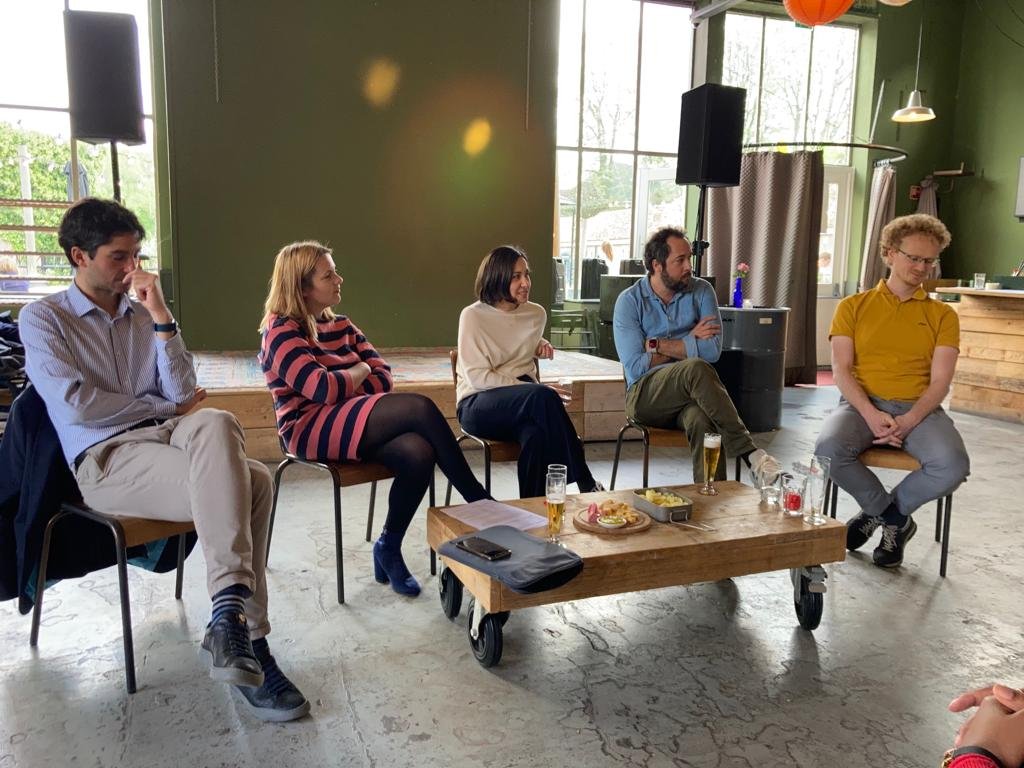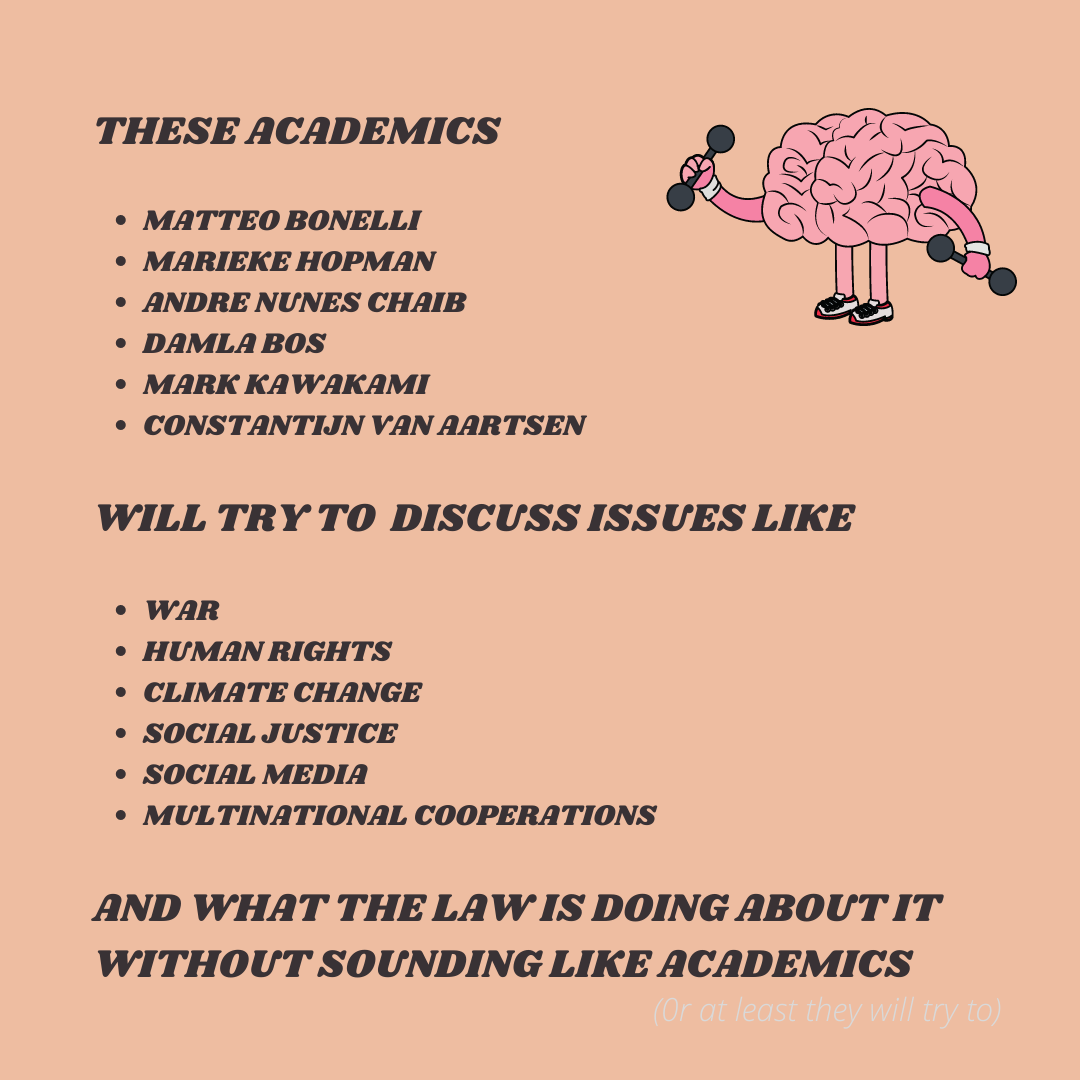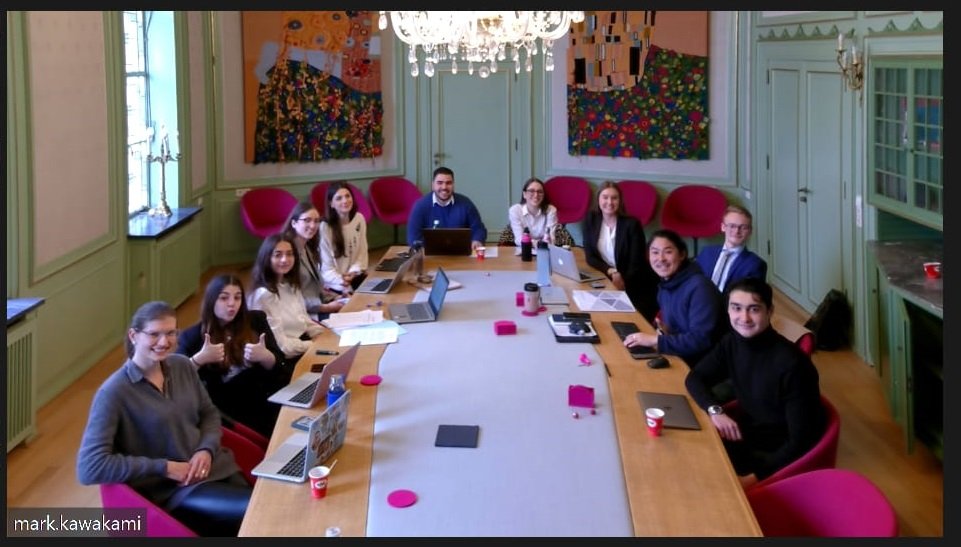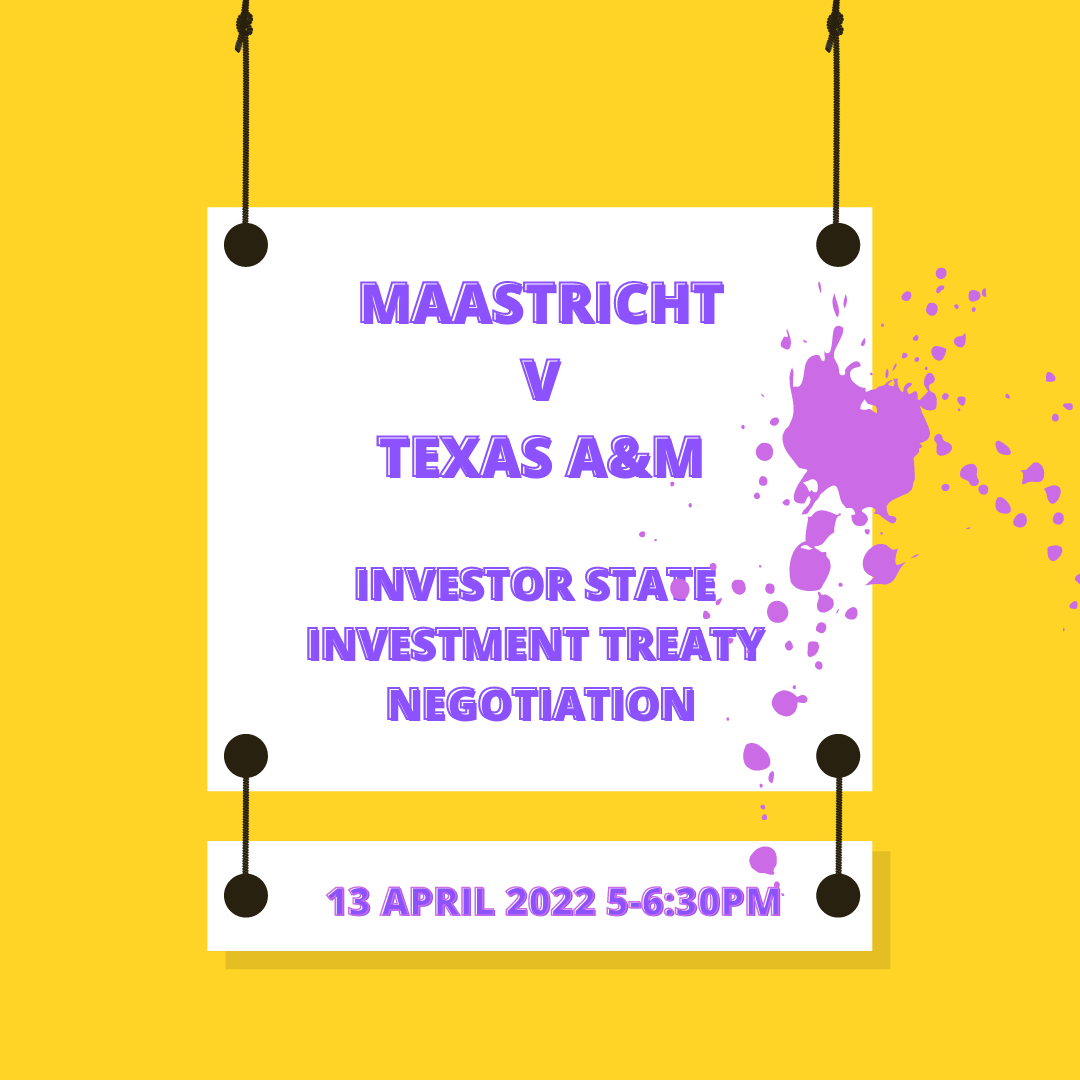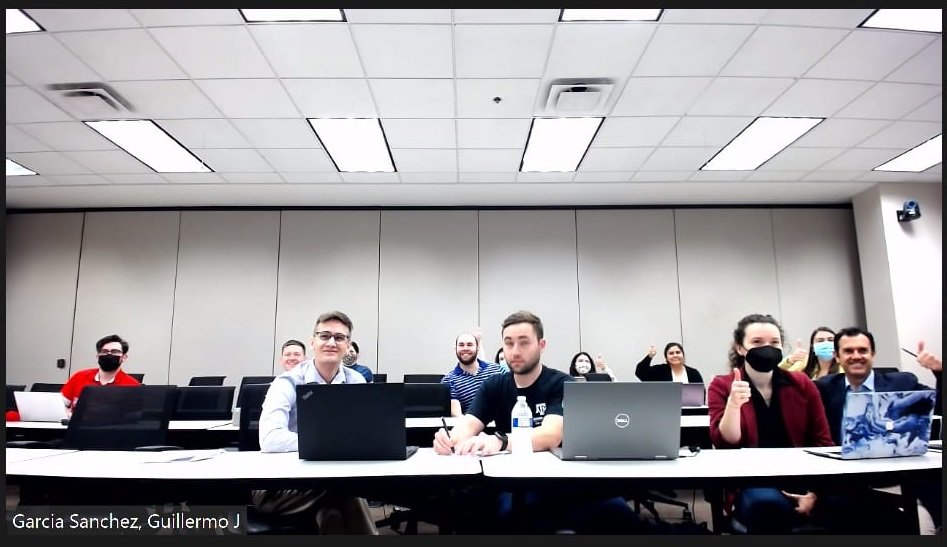I’ve already written - rather recently - about my appreciation for Bram Akkermans for the positive influence he’s had on both my professional and personal life. Tomorrow, I have the opportunity to moderate the Growing Up in Science event, where Bram will be speaking about his career and what academic citizenship is all about. While he was still the Vice Chair of MYA, we made a brief video explaining what our vision of academic citizenship entails, but this event will be a more personal vision of Bram as he shares the ups and downs he has experienced in his career and how he has tried to empower those around him. I highly recommend everyone and anyone to join this event and to come engage with us about what academic citizenship means to you! Please register for this online event here, which will be held on 2 June 2022 (Thursday) from 4:00-5:00pm!
Suicide Prevention Workshop with Flourish Maastricht, The InnBetween & 113
Very important event organized by Anna Schüth and Maren Cremer (Flourish Maastricht) together with Rachelle van Andel (The InnBetween) and 113. You never hope that you need to utilize the skills you learn from these events, but in the event that it does become necessary, it’s so helpful to have an idea of what you can do to talk someone out of their darkness. Grateful to be a part of this!
Studio Europa Maastricht + Maastricht Young Academy Joint Event to Promote Interdisciplinary Research and Interfaculty Collaborations
Not everyone is sold on the idea of interdisciplinary research and even amongst the enthusiasts, there are various obstacles that stand in the way of researchers from different faculties/disciplines coming together to work on a project together. Studio Europa Maastricht in collaboration with Maastricht Young Academy will be organizing a series of presentations that showcase UM researchers already working together across disciplinary boundaries and promote enhanced interfaculty collaborations through a micro-hackathon (where we pair you with folks from other faculties to come up with an interesting research idea together). The topic for this first event on 8 June will be “Crisis in Europe & Beyond”, which we hope is a broad enough theme that will touch upon your research line. So come join us if you are curious about interdisciplinary research (or if you just want to meet new people)! There will be free drinks and snacks, not to mention very cool people!
Students from the UM Interfaculty Global Studies Program Live Up to the Hype!
From Left to Right: Iyad, Yotaro, Gabriel, Nina, Evelien, Bo, Fotis, and Johannes
Last week, I had the chance to tutor a few groups for our Global Studies Bachelor’s program. I’ve been involved with the program in an assortment of different ways, (from design course content, giving a few recorded lectures, and also serving on the Advisory Board for the program), but this was the first time that I got to sit in a classroom with the students themselves, and boy was I not disappointed.
This week, the students were tasked with preparing their own lesson plan, where they were to teach each other a global citizenship skill of their choosing. The group photographed above discussed the topic of cultural differences and issues of identity in an engaging, thought-provoking manner and I can say that some of the discussions that we had as a class really made me re-think and reflect on a variety of issues.
The “teachers” shared some of their stories and opened up avenues for having authentic discussions, which incentivized other students to share about experiences where cultural differences manifested in less than desirable ways, but also in ways that enabled and empowered them. All in all, I left the classroom feeling inspired and wanting to spend more time with these wonderful Global Studies students. While the program has its various flaws and peccadillos, the kids are quite alright (and apparently, the Global Studies Program isn’t too shabby either)!
Studium Generale Interview with Nice Leng'ete
Nice Leng'ete is a Kenyan human rights activist advocating to stop female genital mutilation (FGM) and childhood marriages. Through her work with Amref Health Africa and Nice Place Leadership Academy & Safe House, Nice has saved more than 15,000 girls from undergoing genital mutilation. For her work, she was listed as one of Time Magazine’s 100 Most Influential People in the World.
Sophia and I have the chance to sit down with her for a Studium Generale event, where we get to ask her questions about the role of education/academia in activism, finding allies, how we can all contribute to making meaningful changes, and her most recent Netflix binge. We had the chance to call with Nice earlier this week to discuss the event and even from just the pre-meeting, we came away feeling inspired and at awe of her sheer magnetism. She is not only warm and kind, but is an inspiring leader (not to mention very funny). I encourage everyone to come join us on 11 May from 8-9:45pm at the SBE AULA. Get more information about Nice and register for the event here!
For a little extra credit, also check out her book: “The Girls in the Wild Fig Tree”.
Three (Former) Students Walk into a Lecture
(From Left to Right): Joseph Kunz, Juri Wiedemann & Pierre Ferran, who took International Business Law with me back in 2019, stopped last week for another round of the Hague Visby Rule lecture.
One of the more humbling and delightful things about my job is when former students come back to visit Maastricht and they stop by to update me on all the exciting (and some not so exciting) things that they’ve been up to. I sometimes have bouts of imposter syndrome as a teacher and wonder whether I’m making any positive impact on the students and question if I’m doing a bad job (e.g. wearing a Pikachu t-shirt when I lecture). But these visits help me alleviate my doubts and reassure me that not everything I am doing is horrendous and despicable. I am so very happy and proud of my former students and I enjoy their tales of glorious struggles and wonderful successes vicariously.
Maybe the Law Alone Can't Change the World, but a Small Group of Thoughtful, Committed People Might?!
Big thanks to the many engaged audience members that joined our pop up collab event hosted by ICGI and Glaw-Net. Special thanks to Matteo, Marieke, Damla, Andre, and Constantijn for being wonderful and insightful panel members and Maria Vatista from UWC to help us link up with their students. I learned a lot about how to better organize these informal pop ups and I hope to do many more in the coming years!
On How I Managed to Make a PowerPoint Slide that My 2 Year Old Enjoyed (Thanks to Bram Akkermans)
Our dear colleague (and friend) Bram Akkermans had his inaugural lecture titled “Sustainable Property Law - Reckoning - Resilience - Reform” last Friday, which asked difficult questions about whether/how property law can be reconceptualized to better promote sustainabilty (with a twist of cautious optimism in a typical Akkermans fashion).
Bram also hosted a delightful conference leading up to his inaugural lecture, titled: “Back to the Future of Property Law - Reimagining Sustainable Property Law.” Although I am not a property lawyer by any stretch of the imagination, Bram asked me to participate and present at this conference. I was slightly reluctant at first - again, not being a property lawyer and having done very mediocre in my Property Law class back in law school – but I was encouraged by Bram to “just have fun with it”, which turned out to be a wonderful advice (I’ve gotten many of them from Bram over the last decade so this was no surprise).
I ended up presenting on the ongoing struggles of the Native Hawaiians and their claims to their ancestral lands. The history of the Hawaiian people from the arrival of Captain Cook in 1778 through the Great Mahele, the Bayonet Constitution, and the overthrow of Queen Liliʻuokalani by US government (which was heavily motivated by their colonial/business interests) in 1893. I even mentioned the Queen’s court case against the United States (which was laughed out of court), and the subsequent attempts by the US to rehabilitate Native Hawaiians through “failed” efforts such as the Hawaiian Homes Commission Act (1921) and more contemporary issues like the building of the Thirty Meter Telescope atop Mauna Kea (a mountain that is the burial ground and the embodiment of the most sacred ancestors).
In the presentation, I made the argument that the Hawaiian Homes Commission Act ought to be redesigned in two ways: First, Native Hawaiians should be allocated prime lands coveted by commercial interests (e.g. beach fronts) and not 3rd or 4th class lands that the Act offers them. The logic being that if there were less lands allocated to commercial interests, then there would be significantly less pollution (think single use plastics on the beaches of Waikiki), thus contributing to sustainability of the Hawaiian islands. The second suggestion, perhaps the more controversial one, was to get rid of the blood quantum requirement imposed by the Act and to replace it with a legal commitment (enforced through the power of contract law) of the lease applicants to practice mālama ʻāina (Hawaiian for living in harmony with and to take care/protect the land) through the ways of the kānaka maoli (the Native Hawaiians) using traditional knowledge of farming and ways of cultivating the land.
The presentation was definitely far outside of my comfort zone, but it felt refreshing – if not, damn near liberating – to talk about a topic that I’ve wanted to learn more about and to share with others (but never really had a platform) and for that, I am extremely grateful to Bram. To have a professor that nudges their colleagues to go beyond their comfort zone, to get inspired, and to share their interesting findings with colleagues (who had gathered from all over the world for the conference and the inaugural) is such a huge asset for our faculty. I am very grateful to Bram and wish him a very big congratulation for a very successful conference and a wonderful inaugural.
I would be remiss if I did not add here that in my presentation, I got to incorporate a slide with the Tyrannosaurus Rex (from Jurassic Park), Moana (aka Viana), and Lilo & Stich, which Sam absolutely loved. I think this was the first time that he actually enjoyed any of my “work” presentations, so thank you for that as well Bram!
International Commercial Arbitration/Investor State Investment Negotiation between Maastricht University + Texas A&M University
On 13 April 2022, a select group of UM students* engaged in a negotiation exercise with law students from Texas A&M University Law School. The case involved a US-based oil company investing in/collaborating with a Mexican state-owned petroleum company managed and operated by the Mexican government. The complex case required the students to negotiate on challenging issues related to the law applicable to the arbitration, the seat of arbitration, waiver of sovereign immunity, application of USMCA, ICSID and New York Convention, and the fair and just way of calculating compensation in the event of expropriate/nationalization just to mention a few issues that they dealt with.
This was an intense crash course for most - if not all of the students - but these wonderful, hardworking (and dare I say, wicked smart) students represented not only their fictional client, but also our faculty and the university unbelievably well. A very special thanks to my co-conspirator, Guillermo Garcia Sanchez at Texas A&M and their fantastic JD students. I am very much looking forward to making this partnership a more routine collaboration!
* Guillaume Libbrecht, Ivona Petkova, Mila Grönros, Natalie Benou, Chloe Nursimhulu, Begum Kilimcioglu, Masa Samardzic, Kriton Papastergiou, Kerolos Gebraiel, and Ludovica Lacasella!
Can the Law Save the World: A Discussion
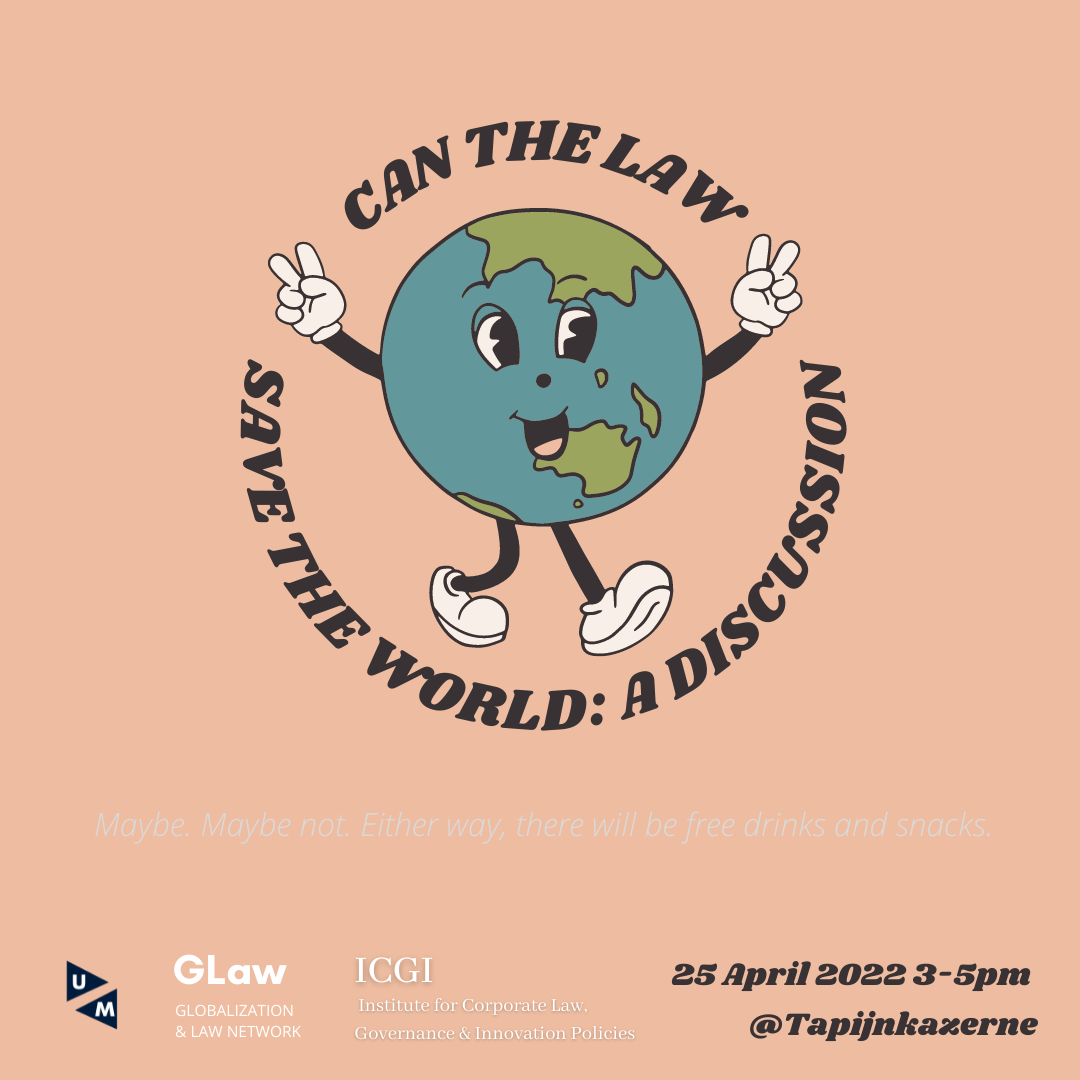
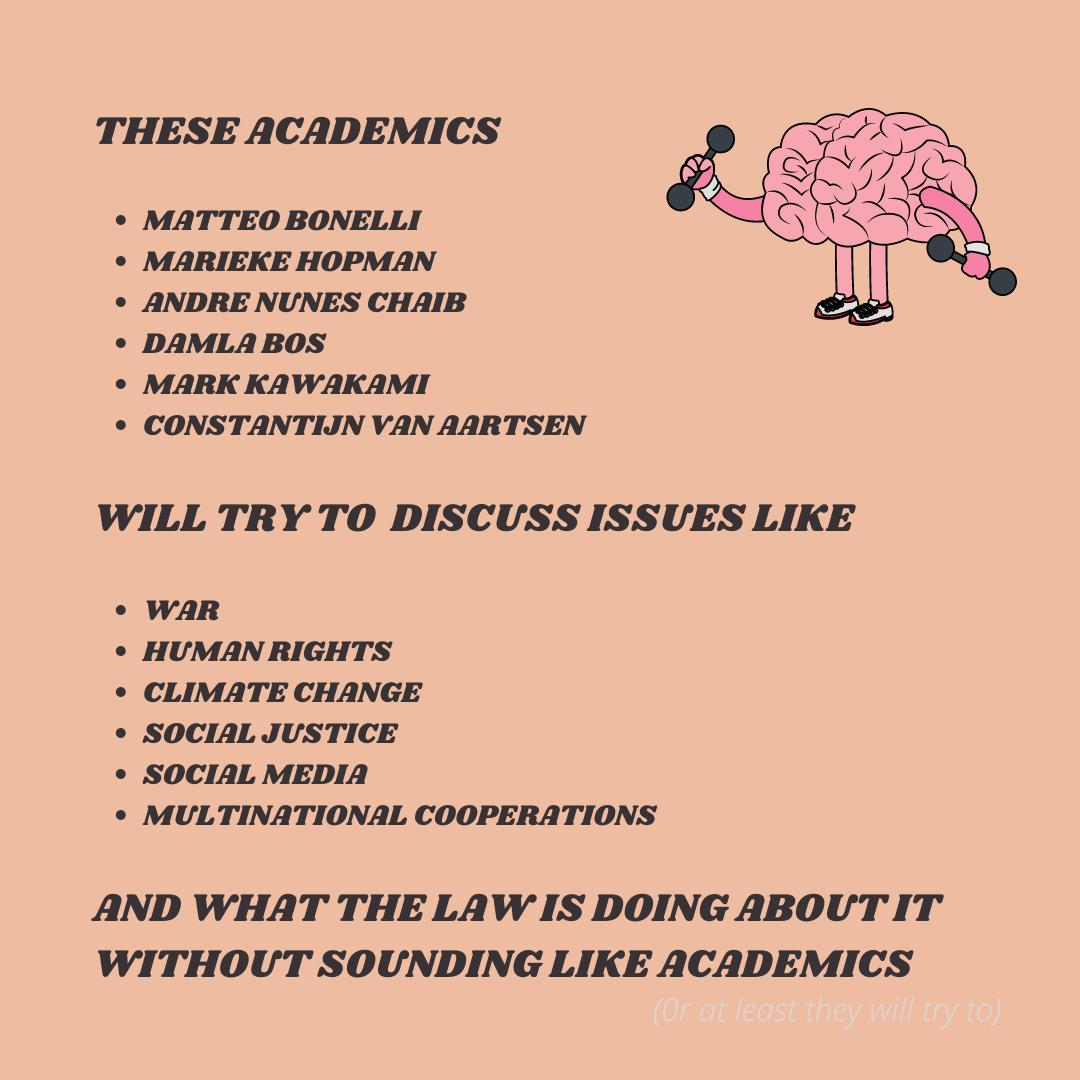
2022 has been a great year so far in terms of planning fun (and educational) events with friends. The momentum continues with our GLaw-Net & ICGI collaboration event on “Can the Law Save the World: A Discussion”!!
The idea behind the event is to get a group of academics to informally discuss issues ranging from the situation in Ukraine, climate change, social media platforms contributing to teen suicides, how MNCs are falling short of their human rights and sustainability commitments, and what the law is (or is not doing) to help in a relatively informal manner.
We also want this event to serve as a bridge, where we link the academics with non-academics in Maastricht (e.g. UWC students and staff, refugees, seniors in Maastricht, and other groups that do not regularly mingle with the Uni bubble). We want the academics to be able to interact with non-academics in an understandable - and dare I say non-pretentious - manner and for non-academics to ask, poke, and prod the academics to look at things from a non-academic perspective.
Register for the event here!!


